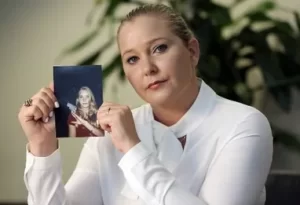A new study published in Child Abuse & Neglect has found that professionals across multiple disciplines—including law enforcement, health care, and mental health—frequently struggle to recognize female-perpetrated child sexual abuse (FCSA), especially in ambiguous caregiving contexts. The research sheds light on how deeply rooted gender stereotypes continue to obstruct justice and support for child abuse survivors.
The study, conducted by Turkish researchers, Seda Akdemir-Ekizoğlu and Zeynep Belma Gölge, analyzed responses from 502 professionals in Turkey. Participants were asked to evaluate a series of vignettes that depicted a wide range of child sexual abuse scenarios. Variables included the victim’s age and gender, the perpetrator’s identity (mother, teacher, or sex worker), and the respondent’s profession and gender.
The findings were that female and mental health professionals were the most likely to recognize female-perpetrated abuse and acknowledge its psychological harm. Justice professionals, such as police officers and attorneys, were the least likely to identify the cases as sexual abuse or assign them serious impact. Abuse involving mothers was especially likely to be minimized or reframed as caregiving.
“Even trained professionals often rely on outdated cultural scripts,” the authors write. “Women are still viewed as nurturing, passive, and non-aggressive. This leads to reinterpretation of abuse in ways that protect the perpetrator and discredit the victim.”
Professionals more likely to excuse or minimize abuse involving women
When the perpetrator was described as a mother, professionals were more likely to downplay the abuse or fail to recognize it altogether. Similarly, scenarios involving female sex workers were rated as less harmful than identical abuse carried out by teachers. These judgments, researchers say, are often shaped by sexual double standards and myths that adolescent boys “benefit” from abuse by women.
Past research cited in the study shows that male victims of FCSA often report intense confusion, shame, and sexual dysfunction later in life, especially when the abuse is committed by a mother, teacher, or other trusted figure. Victims of maternal abuse, in particular, struggle with denial, self-blame, and long-term psychiatric consequences, including psychosis in some cases.
“Some victims say abuse by a woman was more traumatizing than by a man,” said the authors, “because society denies it could happen.”
FCSA is underreported and underestimated globally
While meta-analyses suggest that about 12 percent of all child sexual abusers are female, the real number is likely much higher due to underreporting and societal disbelief. In Turkey, for example, only 0.7% to 0.8% of convicted sex offenders were women in recent years, yet community-based surveys revealed that up to 90 percent of penetrative abuse cases among male victims involved female perpetrators.
Globally, female perpetrators include mothers, sisters, teachers, babysitters, and extended family members, many of whom operate within caregiving roles that offer access and trust. Despite this, victims are often not believed, or their trauma is minimized by professionals and the legal system alike.
The need for urgent reform and training
The study concludes with a call to action: professional training must evolve to challenge gender stereotypes and confront the “culture of denial” that shields female perpetrators. The authors emphasize that ambiguity, familiarity, and caregiving contexts often allow abuse to persist undetected.
“Justice professionals especially need to be trained to recognize female-perpetrated abuse and respond appropriately,” the study warns. “Children’s safety depends on it.”
If you are a survivor of sexual abuse—no matter the gender of your abuser—you deserve to be heard and believed. SurvivorsRights.com offers support, legal guidance, and a safe place to explore your options. Learn more about your rights with our Institutional Sexual Abuse Lawsuit Guide.
When you feel ready to share your story, you may fill out the confidential, secure form below to receive a free case review.




